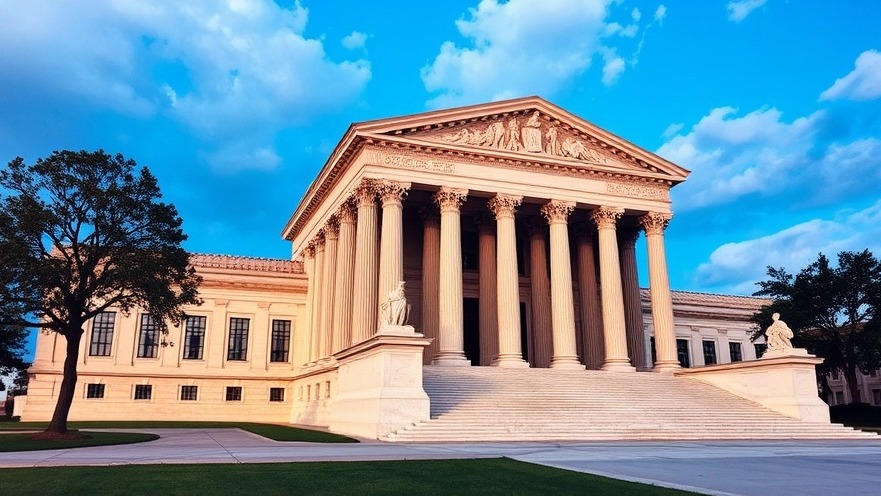
Understanding the 'Death Star' Law Changes Texas Local Governance
A recent ruling by the Third Court of Appeals in Texas has upheld a controversial law that significantly limits the power of cities to enact local ordinances. Known colloquially as the "Death Star" bill, House Bill 2127 was designed to restrain cities from enforcing ordinances that conflict with state laws. The law has been touted by Texas Republicans, particularly Governor Greg Abbott, as a necessary measure to reduce the regulatory burden on businesses. However, opponents argue it undermines the self-governance of urban areas and erodes the ability of local leaders to address community-specific issues.
The Implications of the 'Death Star' Bill
This recent legal ruling raises critical questions about the nature of governance in Texas, especially in cities with progressive leadership, like Houston and San Antonio. The law prohibits local governments from creating ordinances unless explicitly permitted by the state. This has sparked concerns that cities will lose their ability to enact regulations that protect citizens, such as those providing water breaks for construction workers or regulating noise levels.
The ruling overturned a previous decision by a Travis County judge, who had found the law unconstitutional. The appeals court argued that cities had not adequately demonstrated how the law harmed them, which raises a fundamental question about the balance of power between state and local governments.
Historical Context: A Shift in Texas Governance
The passing of HB 2127 marks a historic shift in Texas governance, especially given its timing and impact. For over a century, Texas cities have enjoyed considerable autonomy over local regulations. The current law, however, represents a significant pushback against this tradition and comes amid a broader trend of state-level lawmakers exerting control over urban policies that often reflect Democratic values.
This conflict could further widen the political divide in Texas, with urban areas and their progressive policies increasingly at odds with the Republican-controlled state government. Understanding this historical context is vital as Texans navigate these changes and their implications for local policy-making.
Social Connections: The Value of Local Governance
The restriction on local ordinances raises fundamental questions about the relationship between citizens and their governments. City officials—including mayors and city councilors—argue that local governance is essential for addressing specific community needs effectively. For example, social issues like affordable housing or public health measures may require tailored solutions that statewide laws cannot adequately cover.
Moreover, the ability of cities to create and enforce local policies is not merely a bureaucratic matter; it reflects the values and priorities of their constituents. As Houston's former Mayor Sylvester Turner noted, this law is a "total reversal" of local governance as Texans have known it. These changes could lead to a disconnect between city residents' needs and state mandates, further eroding trust in government.
Future Predictions: What Lies Ahead for Texas Cities?
The future trajectory of Texas cities post-'Death Star' ruling may hinge on several developments. One possibility is increased mobilization among urban populations, who may seek to challenge the restrictions through local elections and advocacy. The legal landscape could evolve as more cities consider their legislative options and potentially pursue new strategies to protect their governance.
Moreover, continued tensions between state and local authorities could prompt various political responses. As Texans enter the 2025 election cycles, issues surrounding local governance are poised to play a prominent role in electoral debates. Candidates who emphasize local control and responsive governance may resonate with voters who feel sidelined by state-level incursions into city autonomy.
Concluding Thoughts: The Call for Action
This landmark ruling has significant implications for the balance of power in Texas and raises critical questions about the future of local governance. Citizens must remain vigilant and engaged in the dialogue surrounding this issue. It’s essential for residents to understand how these changes affect their communities and advocate for policies that protect local interests.
As Texas heads towards its next electoral cycles and faces pressing issues such as gun laws, immigration policy, and education reform, the significance of local governance will only continue to grow. Now is the time for all Texans—especially those in urban areas—to speak out and make their voices heard.
 Add Element
Add Element  Add Row
Add Row 



Write A Comment